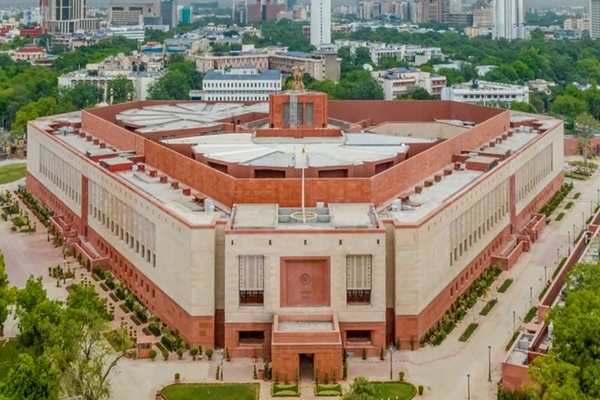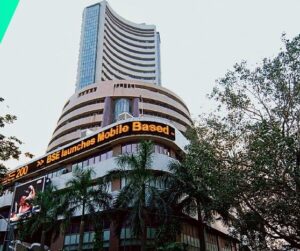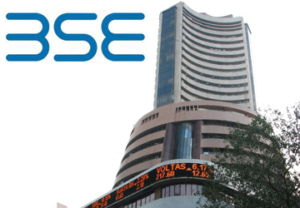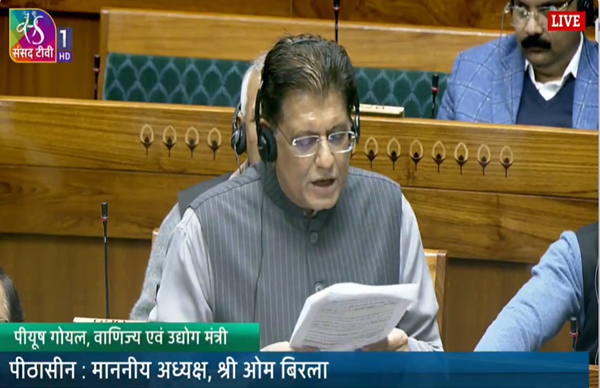
Last Updated on August 23, 2025 12:47 pm by BIZNAMA NEWS
AMN / New Delhi
Prime Minister Shri Narendra Modi, addressing the Economic Times World Leaders Forum in New Delhi, laid out an ambitious roadmap for India’s economic future, underscoring the nation’s resilience, reforms, and rising global influence. Calling the timing of the forum “perfect,” he noted that it was complementing the spirit of next-generation reforms he announced during his Independence Day address last week.
PM Modi stressed that in a world facing complex geopolitical and economic challenges, India stands out as a beacon of growth. Currently the fastest-growing major economy, India is on track to soon become the world’s third-largest economy, contributing nearly 20% of global growth in the coming years. He attributed this to macroeconomic stability, declining fiscal deficit (estimated at 4.4%), strong capital markets, robust banking, and record foreign exchange reserves. Retail inflation remains at its lowest since 2017, while millions of small investors are driving liquidity through systematic investment plans (SIPs).
Highlighting job creation as a central indicator of economic vitality, PM Modi revealed that in June 2025 alone, 22 lakh formal jobs were added—a record for a single month. He also celebrated India’s infrastructure gains, including the expansion of Delhi Airport into the Hundred-Million-Plus Club and the country’s extraordinary leap in renewable energy—solar PV capacity rising from 2.5 GW in 2014 to 100 GW in 2025.
A major boost to India’s economic credibility came when S&P Global Ratings upgraded India’s credit rating after nearly two decades, a move PM Modi said reflects global confidence in India’s growth trajectory.
The Prime Minister reflected on the country’s lost opportunities in the past, stating that India had “missed the bus” in sectors like semiconductors, communication, and advanced technology. He contrasted this with post-2014 reforms, pointing out that India developed its entire 5G stack domestically and is already progressing rapidly toward Made-in-India 6G technology. Semiconductor plants are now taking shape, and the first Indian-made chip is expected by the end of this year.
Turning to space as a driver of future growth, Modi emphasized reforms that opened the sector to private participation. India, which had launched only 42 space missions between 1979 and 2014, has since completed more than 60 missions in just over a decade. With 300+ space start-ups, a ₹1,000 crore venture capital fund, and milestones like docking capability, India is on course to establish its own space station.
In governance, the Prime Minister highlighted landmark reforms passed in the recent Monsoon Session of Parliament, including Jan Vishwas 2.0, which decriminalized over 300 minor offences, and a historic simplification of Income Tax laws for common citizens. Laws dating back to colonial times in shipping and ports have been revised, while major reforms in mining and GST are underway. Modi assured that by Diwali, a simplified GST framework would bring down prices and improve compliance.
Export performance remains a cornerstone of India’s economic rise. The country exported ₹4 lakh crore worth of agricultural goods last year, produced 400 crore of the world’s 800 crore vaccine doses, and boosted electronics exports from ₹35,000 crore in 2014 to ₹3.25 lakh crore today. Automobile exports have also surged, with India preparing to export EVs to 100 countries.
PM Modi strongly linked research, innovation, and economic growth. Expenditure on R&D has doubled since 2014, patents have increased 17-fold, and new initiatives like the National Research Foundation (₹50,000 crore) and the Research Development & Innovation Scheme (₹1 lakh crore) are powering innovation in sectors such as clean energy, biotechnology, and advanced materials.
“India is not just aiming for incremental change but for quantum leaps,” Modi said, reaffirming his commitment to Reform, Perform, Transform. He added that India’s vision of a developed nation by 2047 will be built on the pillars of self-reliance—defined by speed, scale, and scope.
Concluding his address, Modi remarked that India, once known for missing opportunities, is today driving the change: “India is no longer content with throwing pebbles in stagnant waters; we have the strength to redirect even fast-flowing currents.”






